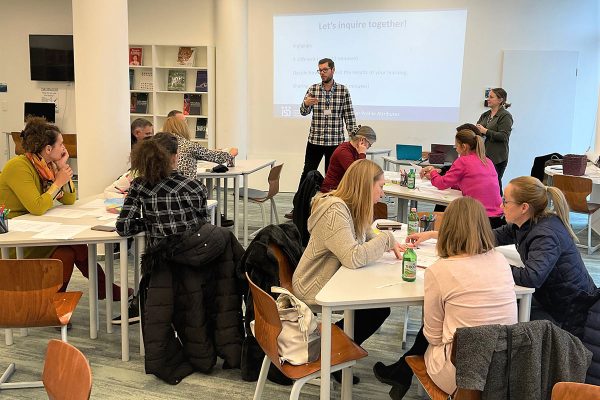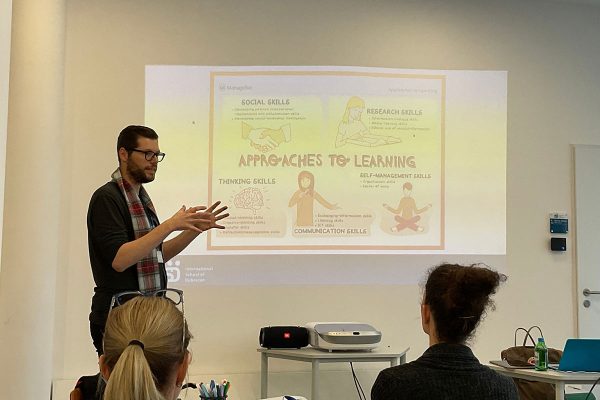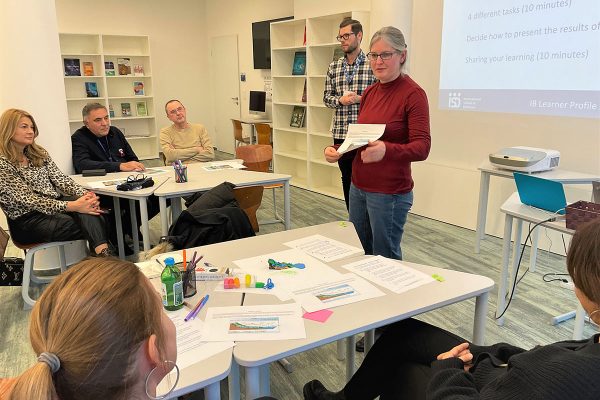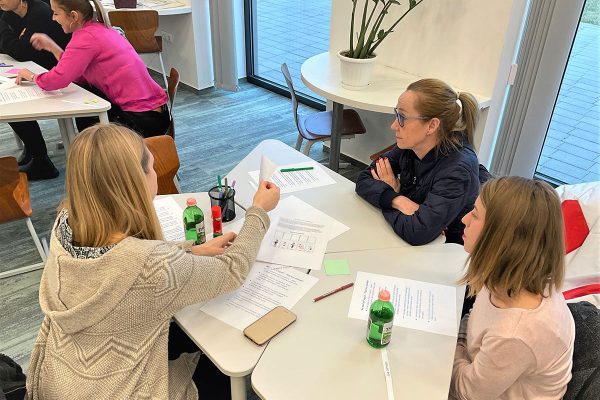Every parent would like to make the best decision when choosing the right school for their child. Various aspects need to be considered, from the teacher to the curriculum, the teaching philosophy, or the school’s location. If a parent has given ISD a vote of confidence, we will do our best to ensure they understand what happens in the classroom on a daily basis. For this reason, regular parent workshops are held for our parent community, where everybody can explore ISD´s IB-inspired approaches to teaching and learning.
Did you know that 65% of children entering primary school today will ultimately end up working in completely new job types that don’t yet exist, according to the research of ‘The Future of Jobs’, at the World Economic Forum in 2016?

That means that educators must adapt to this situation and students have to be prepared to overcome the challenges of this unpredictable future. The skills needed in 10-15 years are entirely different from those we need now or needed decades ago. It is obvious that education has to keep up with this.
During the first workshop, Ms. Rosie Fawcett (PYP Coordinator) and Mr. Loránd Zajta (MYP and DP Coordinator) modeled an activity of a PYP class to demonstrate what IB teachers focus on while exploring an IB unit of inquiry with students. During the activity three IB approaches to teaching were taken into account:
- Teaching is based on inquiry: a strong emphasis is placed on students finding their information and constructing their understandings.
- Teaching is focused on conceptual understanding: topics are explored in order to deepen the understanding and to help students make connections and transfer the learned material in real-life situations.
- Teaching is focused on effective teamwork and collaboration: this includes promoting teamwork and collaboration between students, but also refers to the collaborative relationship between teachers and students. The classroom as a whole strives for one common goal: to truly understand what is being learnt, because only this way will the material be remembered.

Parents who took part, had different subject-related tasks to work on in groups, just like during a PYP class. After this, they were introduced to one of the IB´s overarching key concepts, change. IB key concepts are considered powerful and abstract ideas that have many different dimensions as learners construct their understanding about them throughout their IB education.
During the second workshop participants had the opportunity to explore the IB´s approaches to learning. The main objective was to show how students can get ready to become self-directed learners as well as solve complex tasks and challenges in their adulthood. This was achieved by demonstrating and modeling some of the learning strategies used at ISD meant to help students develop employability skills.
IB programmes help students develop and demonstrate skills, by using case studies connected to authentic, real-life situations and challenges. IB Approaches To Learning (ATL) foster the development of social, research, thinking, communication and self-management skills; these help students become agentic and self-directed learners, who are responsible for their personal and academic growth, and who will be able to find solutions to complex problems in unknown situations, and in an ever-changing world.
To demonstrate how ATL skill development works in a classroom, Ms. Rosie and Mr. Loránd modeled an MYP (Middle Years Programme) Grade 8 Design class. The task for parents was to get familiar with some of the materials used in a Design unit on bridge structures, and develop their creative thinking skills, creating novel solutions to authentic problems and making unusual connections between objects and materials. Participants worked in teams, agreed on the goals they wanted to reach during the task, and reflected on the achievements and challenges they had faced.
Parents were very satisfied with the results of these workshops, and said that they managed to gain new insights and a deeper understanding into these two foundational aspects of an IB education.




